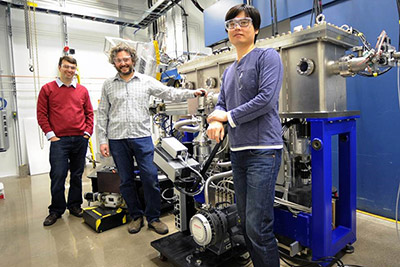Physicists solve magnetic “mystery”
4th April 2015
USA: Physicists claim a breakthrough in explaining a rare property of an exotic magnetic material, potentially ease the path to magnetic refrigeration.
The work, led by University of Connecticut professor Jason Hancock, and Ignace Jarrige of the Brookhaven National Laboratory, is said to mark a major advance in the search for practical materials that will enable several types of next-generation technology. From information storage to magnetic refrigeration, many of tomorrow’s most promising innovations rely on sophisticated magnetic materials, and this discovery is said to open the door to harnessing the physics that governs those materials.
The work is related to the Kondo Effect, a physical phenomenon that explains how magnetic impurities affect the electrical resistance of materials. The researchers were looking at a material called ytterbium-indium-copper-four (YbInCu4).
YbInCu4 has long been known to undergo a unique transition as a result of changing temperature. Below a certain temperature, the material’s magnetism disappears, while above that temperature, it is strongly magnetic. This transition, which has puzzled physicists for decades, has recently revealed its secret. According to Hancock, the new analysis shows that the material has a gap in its electronic spectrum, similar to the gap found in modern semiconductors.
Electronic energy gaps define how electrons move (or don’t move) within the material, and are the critical component in understanding the electrical and magnetic properties of materials.
“The Kondo Effect in YbInCu4 turns on at a very low temperature of 42K (-384F),” said Hancock, “but we now understand why it happens, which suggests that it could happen in other materials near room temperature.” If that material is discovered, he adds, it could revolutionise cooling technology.







